Surprising Expats: James Carcass, Glassblower, Wood Carver
- 16 May 2023 2:37 PM

This time last year, it seemed that James Carcass might unwittingly have become Hungary’s last master glassblower. Hungary – which once had glass factories in Salgótarján, Ajka, Tokod and Parád – now produces only such standard items as beer or wine bottles, with just three small privately-run workshops producing blown glass.
“There are not many true master glassblowers left in Hungary,” James explains. “One of the last, László Kriska, died not long ago. You could put a drawing of anything in front of him and he could make it. Now, I am probably the only one in Hungary able to do that. I have a good friend, Gergely Pattantyus, who also has his own furnace, melts his own glass and makes wonderful objects, but we are pretty much alone in this area."
James studied glass making in Sunderland alongside playing in a punk band, after which he established a glass workshop in London in 1993. Here, he fashioned glass door handles for high-class shops in Chelsea; “I also got chased by all sorts of people: interior designers, people involved in restoration and in antiques,” he says.
It was in 1998 that James first came to Hungary to a glass symposium in Tokod, where he met Bernadett Hegyvári, who later became his wife. After she moved to London, they worked together in James’s workshop, until in 2008 they decided to try and establish themselves in Hungary.
“At that time there was still plenty of glass making in Hungary, but in the time I’ve been here that’s pretty much all disappeared,” says James.
“In Salgótarján they didn’t survive Covid and social distancing – you’re working continuously next to people. And then Ajka closed a couple of years ago.”
James and Bernadett spent months trying to find an ideal property in which to set up their workshop – and a home – scouring the villages outside the capital. “We needed somewhere without any neighbours too close by,” explains James.
“Making glass is very noisy – the furnace, when it’s on, has to be on all night as well – and glass cutting is pretty loud, too.”
They were lucky enough to find a house with pig sties which they transformed to accommodate their Italian furnace, and to include an area for the sandblaster and lathes, alongside a room to display finished items, and Bernadett’s own workshop, among other workspaces.

James in his workshop
“Usually, when the furnace is going, I work every day, and I’m up two or three times in the night to see to it, and to adjust the kilns. It’s really intense. So, I work for two weeks and then switch it off and have a break for a couple of weeks. That’s my basic work pattern.”
Commissions James fulfilled last year came from the Budai Vár (the Buda Castle) and the Opera House. He brushes aside any suggestion that it was an honour for him, as an Englishman, to have been asked made the glass shades for the huge brass chandeliers which hang in the Opera House.
“I’m not approached directly,” he clarifies, “the work comes through middle-men. They don’t know it’s me doing it – they probably think there’s still a thriving glass making industry in Hungary!” he laughs, “but actually, it’s only me who could have done it.”
Another iconic Hungarian company turned to James to produce blown bottles for its most exclusive product: Tokaji Essencia. “Royal Tokaji was looking to put their Essencia into a bottle that would differentiate it from normal wine,” James explains. “I designed a bottle based on the process of the wine dripping.”
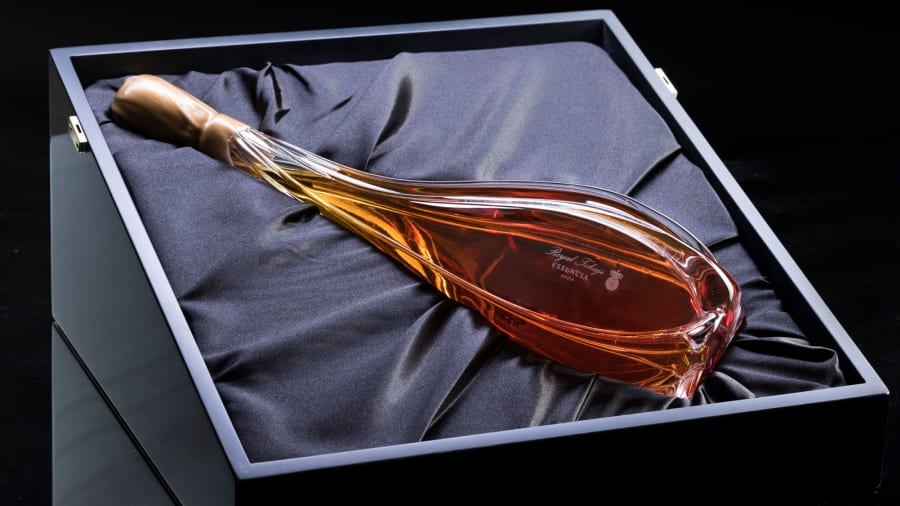
Amid the buckets of glass off-cuts, the countless tools, the wooden moulds which need to be kept under water, and the blow pipes, is a table of almost completed items: vases, colourful bottles and stoppers, and drinking glasses using the “pinching technique” invented by the 17th-century English glass maker, Ravenscroft.
“I like to experiment with different techniques, with colour; I use copper leaf and silver leaf and silver nitrate, but the materials are becoming increasingly expensive."
“Normally, all these things would go to England,” says James, “but since Brexit, the situation has become incredibly problematic. It’s caused a bureaucratic nightmare.”
But as if the situation with Brexit, and the future of blown glass in Hungary were not already sufficiently precarious, the repercussions following unprecedented rises in energy prices have rendered both James’s future, and the future of much else, untenable.
James’s gas bills are now ten times what they used to be. “I was expecting a bill of about 15,000 forints a day for using the furnace for a week, but when my bill came, it was for 980,000 forints!” says James.
“I’ve just done a job for the Basilica in Veszprém which is being renovated [Veszprém is one of Europe’s Cities of Culture this year], I’ve made about fifty hanging shades for the centre of the church, but now I estimate that my next gas bill will be two million forints, and once you include the cost of materials, all the money I made will be gone."
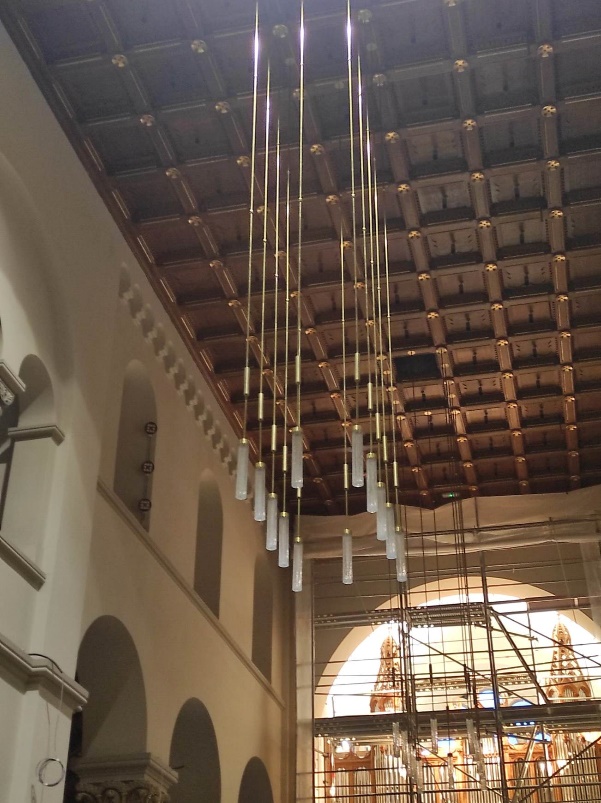
Veszprém Basilica
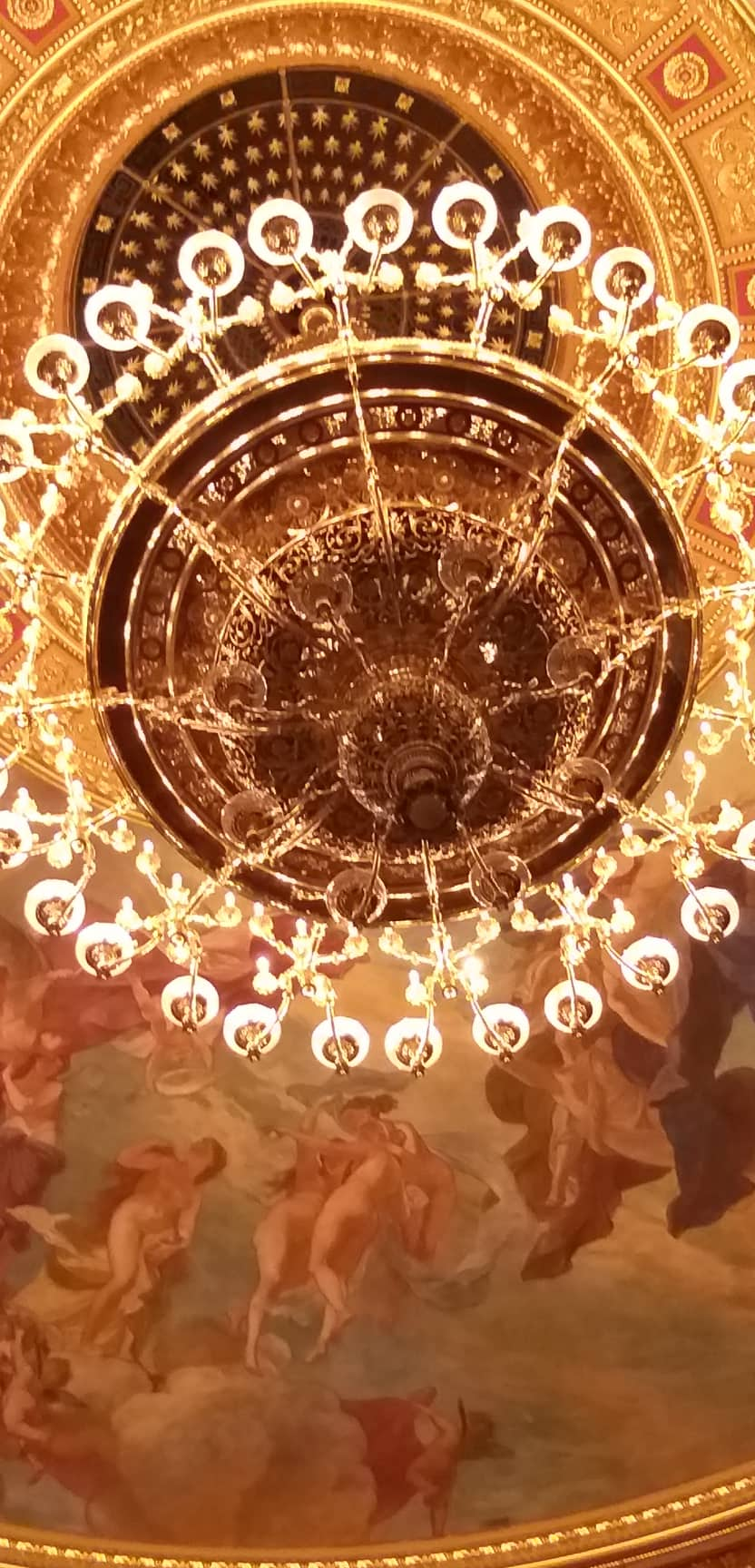
Budapest Opera House
“I’ve also been doing glass restoration pieces for glass cutters – these are one-off pieces to fit into metalwork, and I’ve been doing recycling projects with Luca Görömbei. We’ve been taking the broken glasses from restaurants and melting them in my furnace, then making new products and selling them back to the restaurants. But we’ll have to stop this now, too. It’s not just my life that’s been affected, it’s having an impact on others, too."
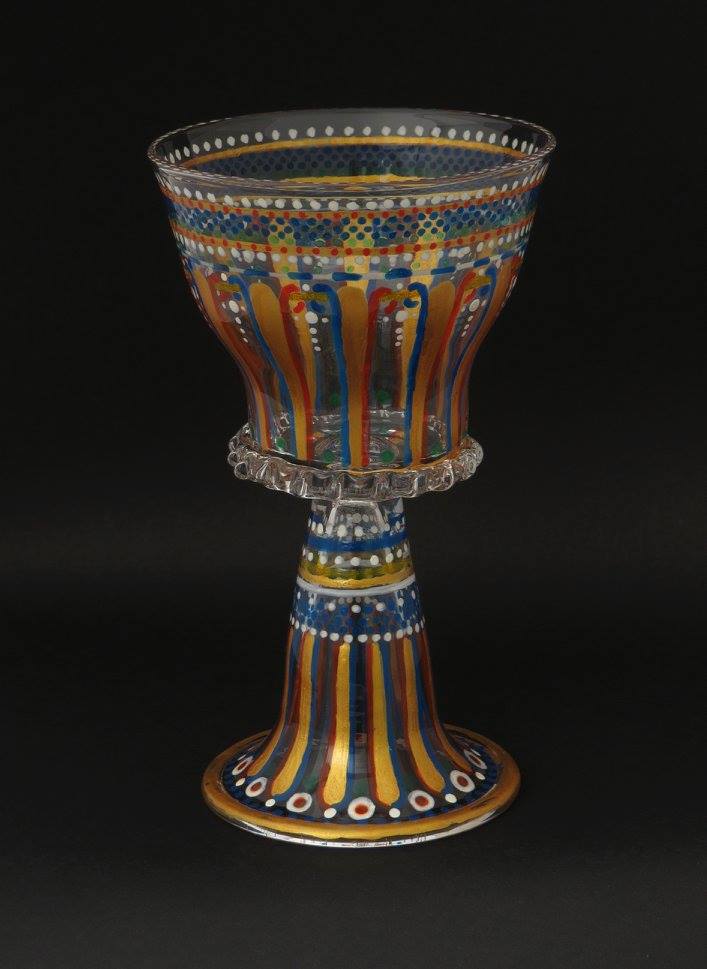
Reconstruction of a Venetian glass goblet from 1530.
“Keleti station is also being restored, and there are huge glass shades all the way through the building. I was approached to make thirty pieces for the restoration, but now I can’t do it. They will have to go somewhere like Poland – but they won’t want to do such a small number, and both parties will be communicating in English, and I know from experience that things often go terribly, terribly wrong….”
In spite of the seemingly hopeless situation, James is stoical – something he attributes to the benefits of his age. James is planning to do his DLA at Budapest’s MoME (Moholy Nagy University of Art and Design).
“It is something that I have wanted to do for a long time and also had been suggested by others,” he says, “and I’m sure I’d like the challenge because I enjoyed doing the MA. I also enjoy teaching the MoME students glass making and expanding ideas about what the material of glass can be.”
Despite a long and successful career in making glass, James sometimes thinks he would rather spend more time on his other passion. “When I switch the furnace off and I’ve got nothing to do, I’m making wooden sculptures,” he says, leading the way to an unfinished piece of work. “I always work with walnut – some of my pieces are in Budapest galleries, and some I hire out.” He also paints.
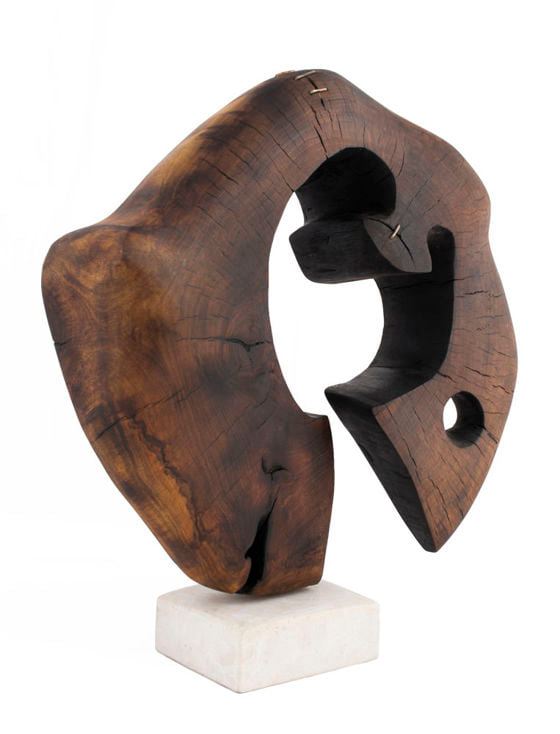
But James will not abandon glass making, whatever the current difficulties. “The world of glass making in the EU is in so much trouble, it needs to realign itself, and I think I have a part to play in that,” he says.
“I made glass for the first Dune film – the stage and prop. designs won an Oscar… and keep an eye open for Dune 2!” he says.
James is currently building a couple of small furnaces at home which operate in a different way and can be powered using bottled gas.
“The quality of glass isn’t the same,” he explains, “but at least I can continue with my own art work. However, I won’t be able to undertake large-scale commissions as I did in the past. I’m no longer in a position to make pieces like that.”
If you would like to be interviewed as a Surprising Expat, please write with a few details of what you do, to: Marion by clicking here.
Marion Merrick is author of Now You See It, Now You Don’t and House of Cards and the website Budapest Retro.
























